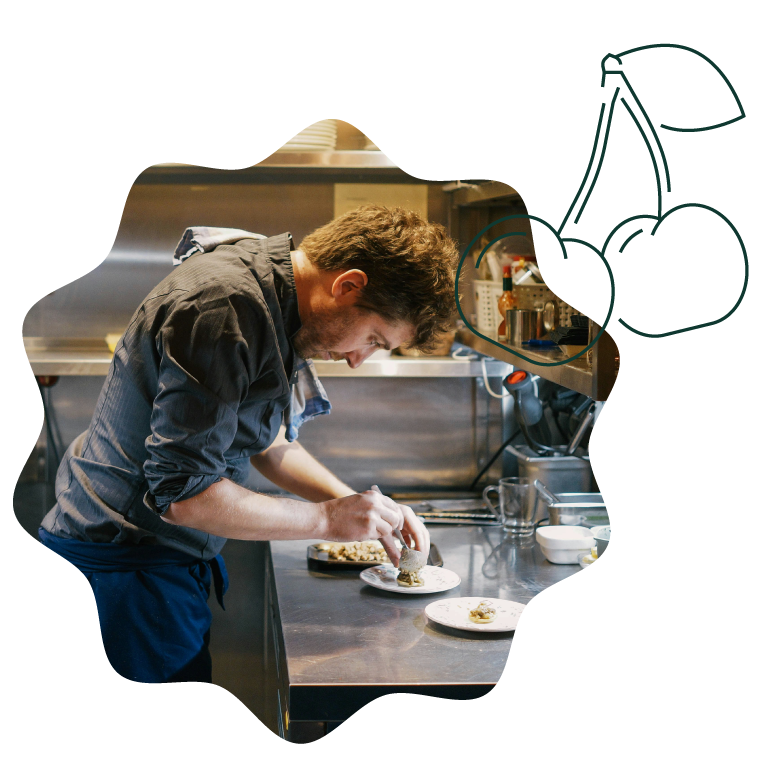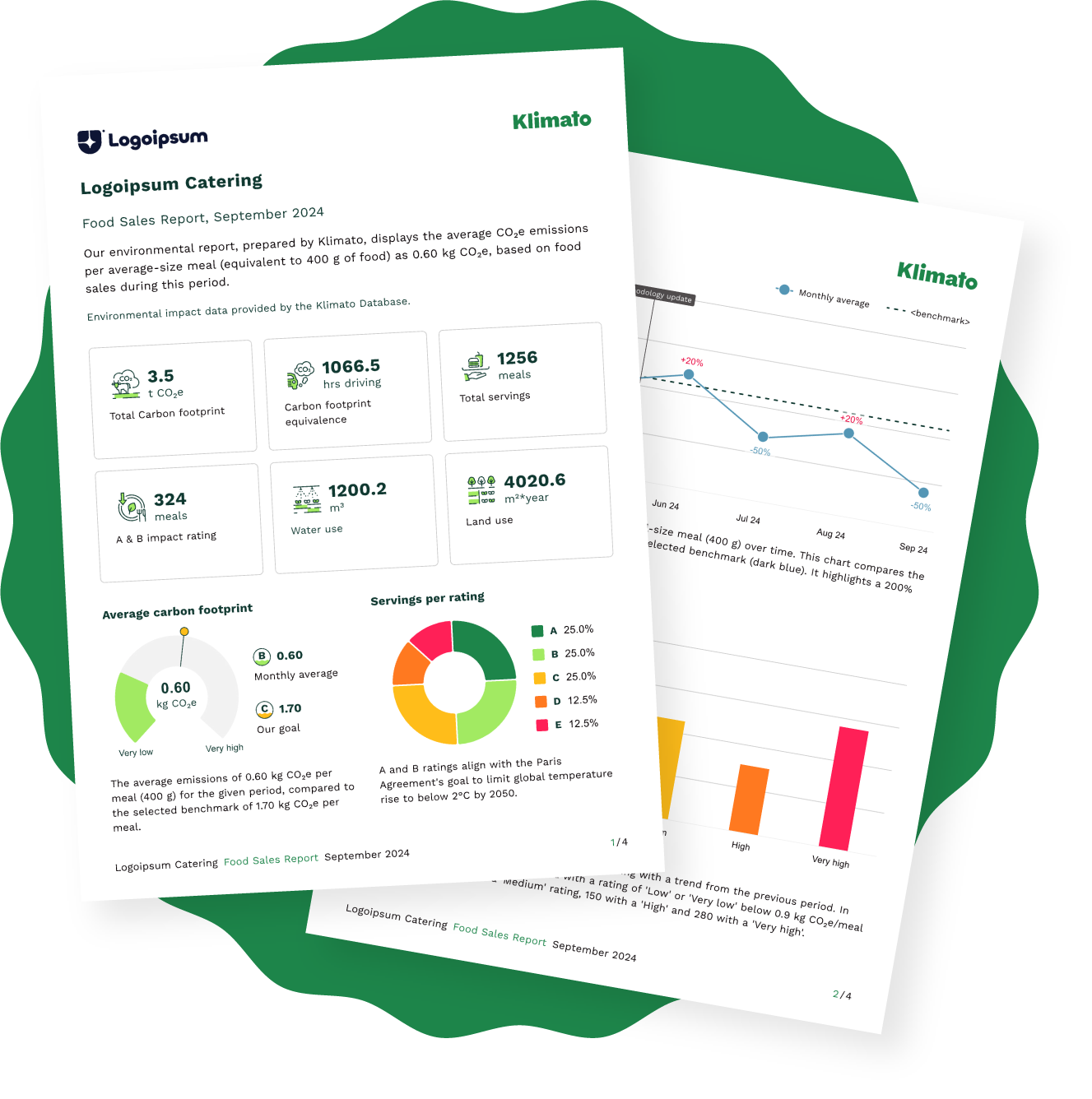CSRD Reporting for Food Businesses
Scope 1, 2, and 3 Emissions Under the Corporate Sustainability Reporting Directive
The Corporate Sustainability Reporting Directive (CSRD) is reshaping how food businesses measure, manage, and disclose their environmental impact. For restaurants, caterers, hotels, and food producers, reporting no longer stops at energy use or internal operations. Companies are expected to account for emissions across their entire value chain.
This shift puts corporate carbon accounting at the center of sustainability strategy. Understanding how Scope 1, 2, and 3 emissions work under CSRD is now essential for businesses preparing for regulatory compliance, investor expectations, and evolving procurement requirements.
WHAT IS CSRD?
CSRD is the European Union’s framework for standardized sustainability reporting. It introduces stricter requirements for transparency, data quality, and third-party verification compared to previous regulations.
For food businesses, CSRD goes beyond high-level sustainability claims. Companies must demonstrate how their operations, sourcing decisions, and supply chains contribute to climate impact—and how those impacts are being reduced over time.
The directive is implemented through ESRS (European Sustainability Reporting Standards), with ESRS E1 focusing specifically on climate change disclosures.
WHO IS AFFECTED BY CSRD?
CSRD applies to companies operating within the EU, as well as organizations trading with EU-based partners. Implementation begins with large companies and expands gradually to additional business categories.
Businesses impacted include:
• Large listed EU companies
• Large private EU companies
• Listed SMEs
• Non-EU companies with significant EU operations
Even companies outside the initial reporting scope may feel indirect pressure through procurement requirements, as corporate clients increasingly request emissions data from suppliers.


WHAT DO FOOD BUSINESSES NEED TO REPORT UNDER CSRD?
CSRD requires companies to disclose sustainability information using ESRS standards. Within ESRS E1, organizations must report emissions across all three scopes:
• Scope 1: Direct emissions from owned or controlled sources
• Scope 2: Indirect emissions from purchased energy
• Scope 3: Value chain emissions, including food production, transport, packaging, and waste
For foodservice businesses, Scope 3 often represents the majority of total emissions. Ingredient sourcing, agricultural production, and supplier activity play a significant role in overall climate impact.
Why Scope 3 dominates emissions in the food industry
Unlike many sectors where emissions come primarily from facilities or energy use, food businesses operate within complex supply chains shaped by agriculture, land use, and logistics.
That means reporting under CSRD requires more than operational data. Companies need visibility into ingredients, procurement patterns, and supplier practices.
Many organizations use life cycle data and carbon footprint analysis to understand how sourcing decisions affect emissions across the value chain.

Turning CSRD reporting into a carbon accounting strategy
While CSRD is a regulatory requirement, many food businesses use it as a framework to strengthen long-term carbon accounting practices.
Key focus areas include:
• Standardizing emissions data across sites and suppliers
• Aligning procurement decisions with climate targets
• Integrating reporting into everyday operational workflows
• Preparing for science-based targets and future disclosures
Rather than treating reporting as a once-a-year exercise, organizations are embedding Scope 1–3 tracking into continuous decision-making.
How Klimato supports CSRD-aligned Scope 1–3 reporting
Klimato is designed for food businesses navigating corporate carbon accounting and CSRD requirements. By connecting procurement, recipe, and operational data, Klimato helps organizations track emissions across all three scopes.
Key capabilities include:
• Automatic Scope allocation across procurement and sales data
• Ingredient-level Scope 3 insights
• Supplier and menu comparisons
• Exportable reports designed for auditors and stakeholders
This approach allows sustainability teams to move from fragmented reporting toward structured, CSRD-ready carbon accounting.
Preparing for the future of food industry reporting
CSRD reflects a broader shift toward standardized climate disclosures. For food businesses, the focus is moving beyond isolated sustainability initiatives toward integrated reporting that connects sourcing, operations, and long-term strategy.
Organizations that build strong Scope 1–3 data foundations today are better positioned to adapt to future regulations, investor expectations, and procurement requirements across the food sector.
Whether your business is preparing for mandatory reporting or supporting clients that must comply, building clear visibility into food-related emissions is the first step.
